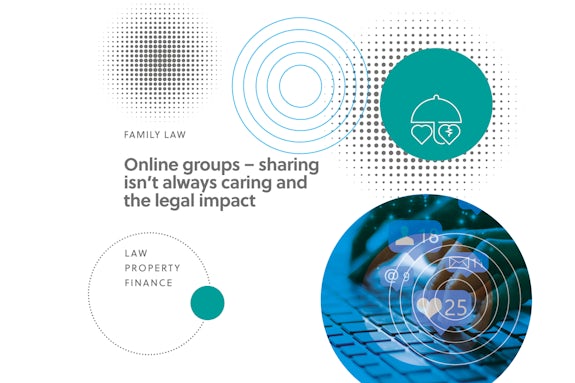
June 9, 2025

Even before our world changed thanks to Covid-19, social media was increasingly playing a part in our lives. Facebook, Instagram and Twitter are just some of the big players amongst an ever increasing plethora of options. Also of increased prevalence are specific groups, it seems for almost every interest, where social media goers can find like-minded individuals with whom to exchange posts, recommendations and ideas.
Lockdown understandably widened the field as we all resorted to online providers for everything from exercise, to food, to ideas on how to occupy our bored children. There seemed to be an “online” place for everything, and few of us were immune.
One phenomenon I began to observe was the extent to which these online groups and spaces then became a place for sharing beyond their initial purpose. It’s understandable of course – after all one can assume that most people who took the bother to join, for example, a closed Facebook group did so because they had at the very least interests in common with fellow members. If you’ve joined a kid’s crafting group, there’s a good chance that someone on it might have a decent chocolate chip cookie recipe!
However, I have found myself troubled by the use of such platforms to ask advice that goes well beyond the expertise of most of the members contributing; and that includes advice about the law. Family law in particular it seems regularly features. In a way, it is not difficult to understand why. Such groups and forums can seem like a “safe space” to share your story with like-minded people; some of whom are bound therefore to have gone through similar experiences. It is human to want to reach out and connect with those who have already trodden the path you are starting down and therefore might be able to offer assurance and advice.
As a family lawyer, what worries me is how often in these situations posts and discussions morph into the tendering of legal advice by those not qualified to give it. This takes many forms. It includes individuals repeating legal advice to the “original poster” which they themselves had received and which clearly (at least to the eyes of an expert) is not applicable to the OP’s circumstances; or giving advice which is wholly legally incorrect. Perhaps most disappointingly, these feeds are all too often full of advice to stay away from the lawyers who, the well-meaning responder will insist, don’t care, are not there to help anyone, and will inevitably make the situation worse. This couldn’t be further from the truth.
It is interesting that the moderators/admin of many such groups and forums will shut down any posts asking for medical advice, undoubtedly because erroneous medical advice could lead to serious consequences. It is quite right that they do so – the other mums in your online baby group are clearly not the people you should be trusting to give definitive medical advice on a dodgy looking mole. Whilst of course the consequences of incorrect legal advice may not be potentially life threatening, the financial and emotional consequences could be catastrophic and it is therefore disappointing that those who carefully police medical queries allow legal discussions to proceed unfettered.
The moral of the story? Family law is complicated. Every family is individual and dynamic. Rarely is there a “one size fits all” approach that applies to every case. Relying upon any “advice”, however well-meaning, from someone who is not a family lawyer could have potentially serious consequences. With that in mind, we would urge anyone with a family law issue to seek proper legal advice and not rely on that found on Facebook groups; internet forums; or similar. Getting the right advice at the earliest stage possible is absolutely critical. We do care; we are there to help; and more often than not we can make (at least some things!) better.
If you would like further information regarding the topics discussed in this blog, please contact:
Sally Nash by email: snash@gilsongray.co.uk or by phone: 07487 802 488 / 0131 285 4793
Philippa Cunniff by email: pcunniff@gilsongray.co.uk or by phone: 07487 800 526 / 0131 285 4792
You can also visit our Family Law Team page by clicking here.
The information and opinions contained in this blog are for information only. They are not intended to constitute advice and should not be relied upon or considered as a replacement for advice. Before acting on any of the information contained in this blog, please seek specific advice from Gilson Gray.

Sally is a Partner in the Family Law Team. Sally deals with a wide range of cases in the Family Law field including financial provision on divorce, cohabitation, child related issues, and Nuptial Agreements